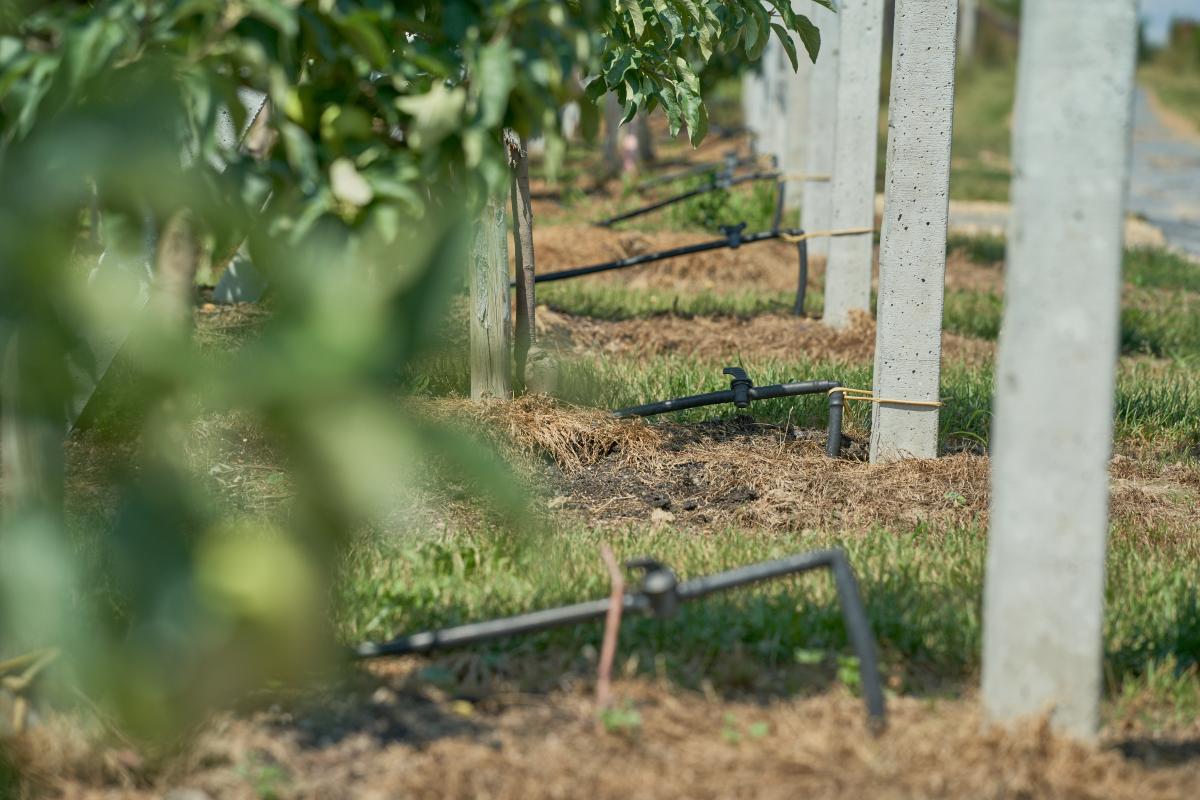Zrównoważone nawadnianie roślin
Jak wynika z danych Instytutu Ogrodnictwa – PIB Polska ma jeden z najgorszych bilansów wodnych. Ograniczone zasoby wodne mogą w przyszłości stanowić barierę rozwoju zarówno szeroko pojętego rolnictwa, jak i innych działów gospodarki.
Oszczędnie gospodarowanie zasobami wodnymi na wszystkich etapach użytkowania wody w produkcji rolnej staje się koniecznością. Oszczędności te można osiągnąć poprzez szereg działań, które należy propagować wśród rolników.
Opinie lokalnych liderów kluczowe dla dalszych działań
Lokalni liderzy-rolnicy przekazali nam swoje uwagi na temat gospodarki wodnej w swoich gospodarstwach rolnych. Jak wskazała rolniczka z woj. warmińsko-mazurskiego:
„Nawodnienie jest niezwykle istotne w prowadzeniu zrównoważonej produkcji rolnej. Musimy pamiętać, że kraje które dotykają upały i ich gleby są mniej zdatne do efektywnego rolnictwa, potrafią sobie z tym radzić. Powinniśmy uczyć się na ich przykładach, w szczególności gdy nadchodzące zmiany są nieuniknione. Należy działać aktywnie na poziomie Komisji Europejskiej i Polskiego Rządu, aby stworzone zostały odpowiednie środki na te cele.”
W Sadzie Rokickim, Cezary Rokicki, lider projektu Energia Dla Wsi wie jak znaczną rolę stanowi nawadnianie w rolnictwie i stosuje zrównoważone rozwiązania w tym zakresie. Sadownik we współpracy z Instytutem Ogrodnictwa w Skierniewicach opierał się na badaniach prowadzonych bezpośrednio w sadzie. Cezary od wielu lat współpracuje z Instytutem, w szczególności z prof. dr hab. Waldemarem Trederem i podkreśla jak ważna jest współpraca rolników z instytucjami naukowymi i badawczymi. Równie ważne jest określenie przez rolnika potrzeb gospodarstwa rolnego. Cezary Rokicki stosuje nowoczesne rozwiązania, dzięki którym realizuje rolnictwo zrównoważone.
Już 12 września 2024 r. na platformie YouTube na kanale Energia Dla Wsi odbędzie się webinarium dotyczące wyżej wymienionych wyzwań prowadzone przez prof. Waldemara Tredera. Więcej informacji wkrótce na naszej stronie.

Photo by Darek Golik in the Rokicki Orchard for the project www.energiadlawsi.pl
Sustainable Irrigation of Plants
According to data from the Institute of Horticulture – PIB, Poland has one of the worst water balance records. Limited water resources may become a barrier to the development of both agriculture in its broadest sense and other sectors of the economy in the future.
Efficient management of water resources at all stages of water use in agricultural production is becoming a necessity. These savings can be achieved through a range of actions that should be promoted among farmers.
Opinions of Local Leaders Are Crucial for Further Actions
Local leader-farmers have shared their feedback on water management in their farms. Farmer, leader of the project described her observations based on her experiences:
"Irrigation is extremely important for sustainable agricultural production. We must remember that countries experiencing heatwaves and having less fertile soils for efficient farming manage to cope with this. We should learn from their examples, especially as the upcoming changes are inevitable. Active actions are needed at the level of the European Commission and the Polish Government to ensure that appropriate measures are created for these purposes."
In the Rokicki Orchard, Cezary Rokicki, leader of the Energy for the Village project, understands the significant role irrigation plays in agriculture and applies sustainable solutions in this area. The orchard manager, in collaboration with the Institute of Horticulture in Skierniewice, relied on research conducted directly in the orchard. Cezary has been cooperating with the Institute for many years, particularly with Prof. Waldemar Treder, and emphasizes the importance of collaboration between farmers and scientific and research institutions. It is equally important for the farmer to identify the needs of their agricultural operation. Cezary Rokicki uses modern solutions that enable sustainable farming practices.
